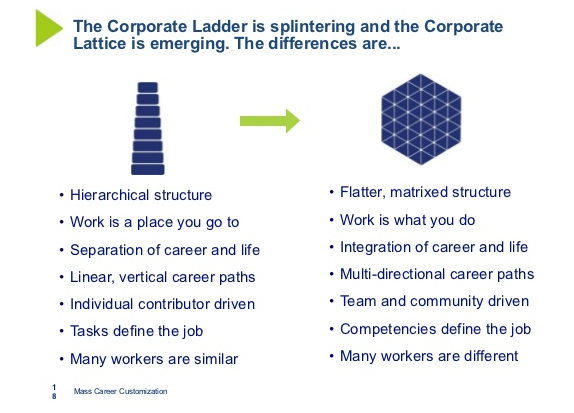How Employee Experience is driving Customer Experience: a 4-part series
Employee experience (EX) is the latest buzzword in the business world. But is this focus on workforce wellbeing just a fad, or are we finally seeing the manifestation of the ‘future of work’ concept?
Part one: The Future of Work
As the percentage of millennials making up the global workforce increases, their influence has become the catalyst for the changes we are seeing in working cultures and environments. Larger corporations already have a millennial majority workforce such as Ernst & Young where they account for over two-thirds of the employee base. These millennial workers are craving a more dynamic working culture. They thrive in teams; they think creatively; they move at a fast pace and they are shaping the future of work.
‘We don’t live in an industrial age, we live in a digital age. And if you look at all the shifts taking place, one [of the biggest] is the composition of the workforce, which is far more diverse in every way’ Cathy Benko, VC of Deloitte SF.
The shift from the ‘ladder’ model, the traditional corporate hierarchy structure conceptualised during the industrial revolution, to the ‘lattice’ structure reflects the views of today’s workforce as they focus on growing their skillset. The lattice structure allows employees to improve their performance laterally, rather than pushing them to climb the ‘ladder’.

This concept enables staff to discover their strengths organically, leading them to feel more valued and empowered and inevitably resulting in a higher level of job satisfaction and performance. This is what the new generation of employee is looking for in a working environment; gratification, progression and a sense of contribution – an overall good experience.
Today’s diverse workforce is pushing organisations to become more transparent. The millennials champion honesty and openness, a result of growing up interacting on social networks which are centred on sharing information and opinions. Accustomed to the rapid and constant introduction of new technologies, they are adept at learning new skills and embracing new tools and techniques and introducing them to existing staff to facilitate better ways of working.
Philippe De Ridder, co-founder of the Board of Innovation says ‘Large organisations have a huge challenge in attracting the millennial generation to come and work for them. Those people expect much more entrepreneurial environments – more freedom to operate, less control.’
Part of the freedom millennials value is the option to work from home or outside of traditional office hours. There is a demand for an integrated work and personal life which has always existed, but with the globalisation of industries, emerging mobile technologies and the millennial approach to work-life balance, the barriers that previously inhibited this opportunity are no more. Today’s workers are happy to make a career they enjoy part of their life, rather than being just a job.
These key trends; New behaviours, Technology, the Millennial Workforce, Mobility and Globalisation – as identified by Jacob Morgan, founder of Chess Media Group – are shaping the future of work. But why should businesses change their structures, introduce flexible working or actually care at all whether their employees are having a good ‘experience’? Find out in the next instalment: Why you NEED to enhance your employee experience.
Part 2: Why you NEED to enhance your employee experience.
Part 3: What does good employee experience look like?
Part 4: How do we achieve a good employee experience in the contact centre?



